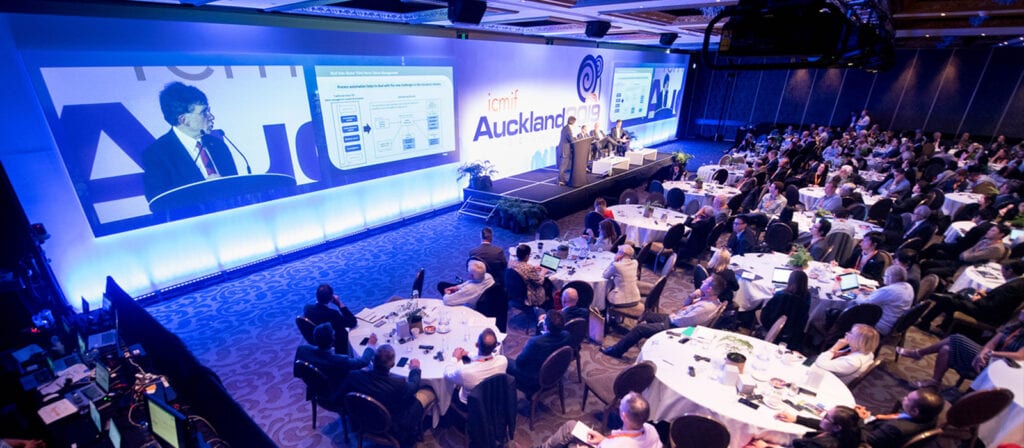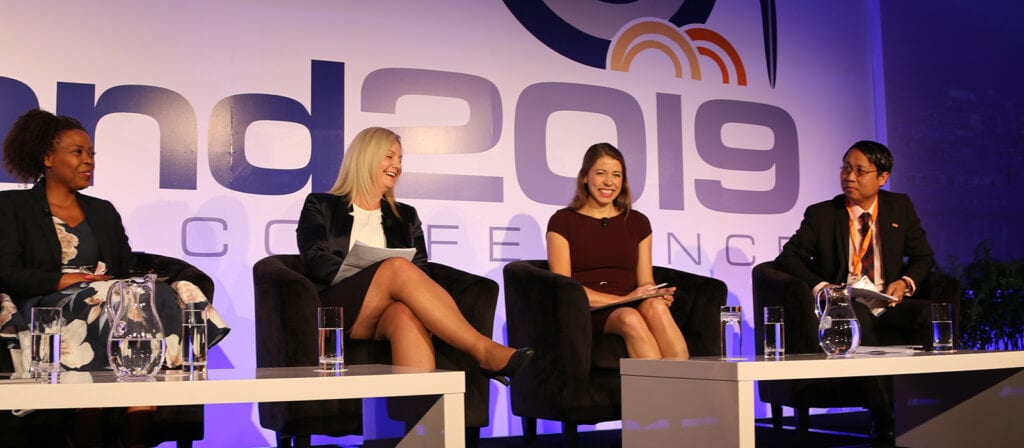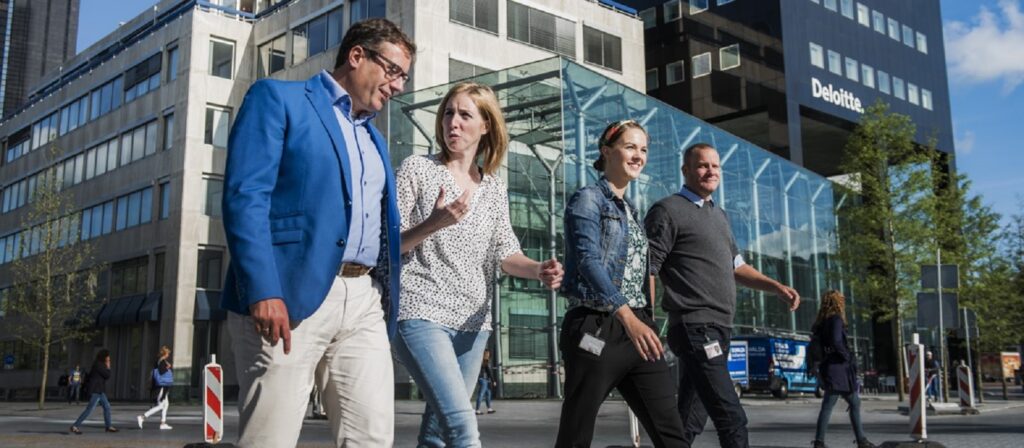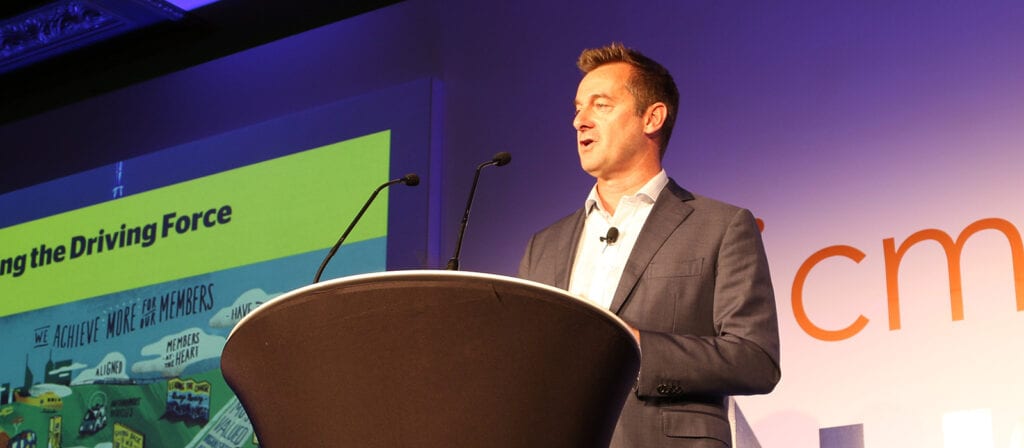DEVK (Germany) established its “Future Factory”, an in-house innovation lab, in 2015. It is housed within the main DEVK offices in a bid to try and influence the core business. DEVK has 6,000 employees with many great ideas but previously not enough time or space to leverage this. The company launched a contest to generate potentially innovative prototype ideas. Six were identified and these ideas were given funding and resources to develop them. Staff then vote for the best one and then that will be implemented. It was an important initiative to keep younger people resonating with the culture of the business.
There were challenges over resources due to not having the full support of neither middle management nor the Board, but staff showed genuine passion and excitement. It is essential to have the buy-in right across the business. More staff now want to be involved, so DEVK is looking to open up the project further in the future.
At MACIF (France), a new strategic plan was started in 2016 revolving around the aim to become a more customer-focused business, together with implementing a new distribution model and products, and increasing digitalisation. Whilst it has a very strong mutual identity, the challenge is how to effectively to transform “a very traditional company”. MACIF has low staff turnover, but the average age of staff is 45; this increases to 52 for top management
MACIF set up a Youth Advisory Committee (YAC) consisting of 20 young (aged 35 or less) employees with equal gender diversity and chosen from a cross-section of the entire company. This committee meets four times a year with the CEO and Group Company Secretary to discuss both strategic and operational issues. Their goal is to help change the company when and where needed. The group members work closely together and have develope strong personal as well as professional relationships. The committee looked at customer experience and provided such compelling insights that several members of the Executive Committee decided to join the YAC on a regular basis to enable them to be closer to these insights. The CEO also adjusted the internal communications process following feedback from the YAC to make things clearer for staff members across the business
The YAC wanted to move things ahead quickly, but the culture and processes do not always allow this. Sometimes being a mutual makes this a slower process. It is necessary to explain the governance and regulations that the company adheres to, which therefore means they are unable to go as fast as they would like to. Now more young employees want to get involved. Staff are proud of the organisation and their values, but adapting to change can be difficult.
PPS (South Africa) has been in operation for more than 75 years and was started originally by eight dentists. The previous CEO recently retired after having transformed and innovated the business by investing in external organisations. The new CEO wanted best-of-breed people, propositions and a strong, unified brand. But the various brands and subsidiaries are not easy to manage. The company decided it had to disrupt themselves in order to create a vision for 2022. It was felt necessary to bring the subsidiaries within the business and there was a requirement to add value-added products and services. PPS established more cross-functional teams to create proposals to improve the overall proposition.
The company started working with universities and created the PPS Academy to learn ways of innovating processes and removing hierarchy-thinking. All staff can be leaders and leverage the energy of the organisation using a defined methodology and design thinking. The PPS Member Community Platform is aimed at engaging members in the co-creation of innovations.
PPS wants to develop a culture of collaboration and change. It is now looking at which behaviours and competencies should be encouraged and considering the appropriate balanced scorecard measurement. As a mutual, the process can feel slow; but, it does not want to change the very thing that makes the organisation special.
The Co-operators (Canada) adopts a ‘shotgun’ approach to innovation (rather than a targeted approach). However, complex issues are driving activities around this apporoach and these need to be focused and deliberate. Innovation is an ongoing topic at the organisation. It has looked at some of these emerging issues through the cooperative lens and engaged disparate groups of staff to consider these aspects. The groups created a programme office to help manage this work and to develop a common language, adopting David Weiss’ Innovative Intelligence model.
The company have added innovation into their competency model, and, depending on the role, into its employee performance management process. Identifying the people who can best deliver innovation to the business is key. It is also vital to stop going to the same people all the time and instead bringing in younger leaders to give them exposure.
The Co-operators wants to create an environment where people can “fail gracefully”. However, it is a conservative organisation and an investment failing is very difficult to accept culturally. It has recently partnered with Cookhouse Labs, an insurtech company based in Toronto, to solve industry-related programmes and create more collaborative workspaces. Cookhouse is very collaborative organisation, while consensus building is slowing The Co-operators down and that needs to change. New hires from outside the cooperative sector get frustrated about the time the decisions take to be made. However, sometimes existing staff do not have the ability to change. Within the context of innovation, the reality is this will impact jobs in the future.
Session panellists:
- Paul Hanna, Executive Vice President Member Relations, Governance and Corporate Services, The Co-operators (Canada)
- Jean-Baptiste Clerc, CEO’s Office, MACIF (France)
- Julia Ludin, Coordinator of IT Development, DEVK (Germany)
- Lindi Dlamini, Group Executive: Human Resources, PPS (South Africa)
- Gina Fusco, Director of Strategy and Marketing, NFU Mutual (UK) moderator





